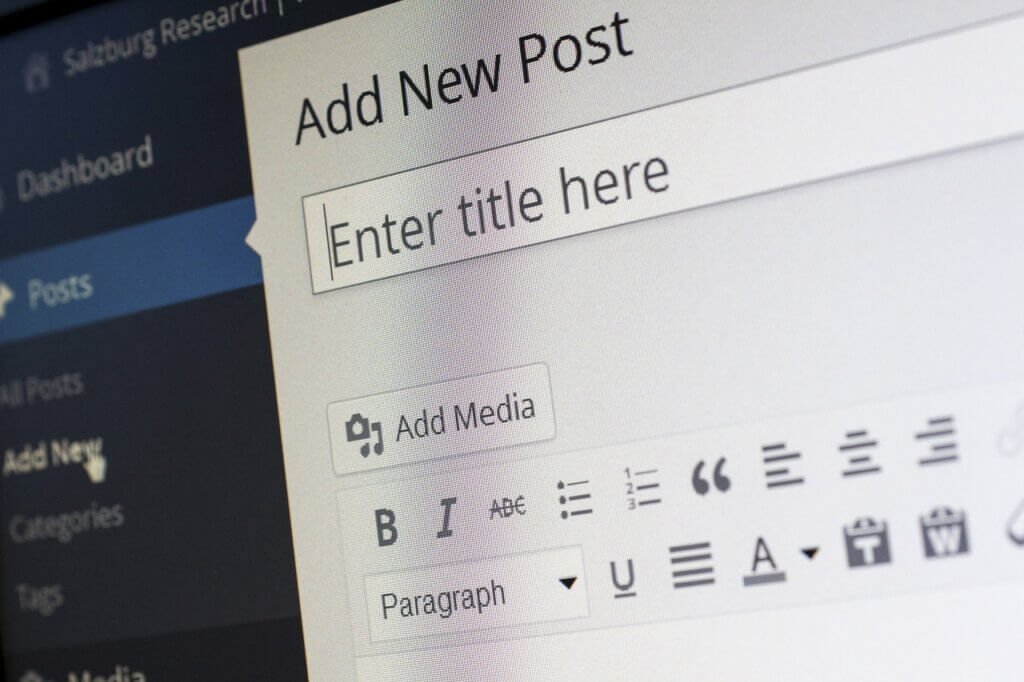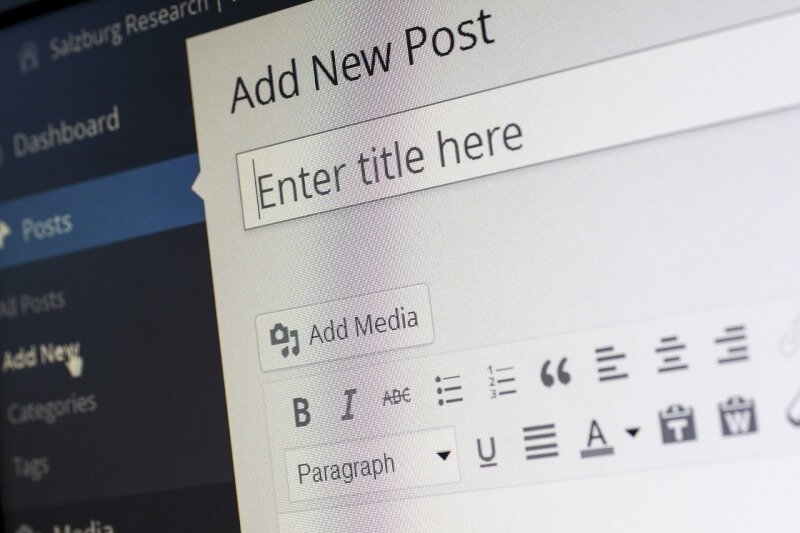If you’re just starting out on your blogging journey, fear not – we’ve got you covered with these 10 essential blogging tips for newbies. From finding your niche to engaging with your audience, we’ll explore the key aspects of creating a successful blog. Whether you dream of becoming a professional blogger or simply want to share your thoughts and ideas with the world, these tips will help you get started on the right track. So grab your keyboard, and let’s dive into the wonderful world of blogging!

Choose the Right Blogging Platform
Consider your goals and needs
When starting a blog, it’s important to choose the right platform that aligns with your goals and needs. Take some time to think about what you want to achieve with your blog. Are you looking to share your personal experiences, promote a business, or establish yourself as an expert in a specific niche? Understanding your goals will help you choose a platform that offers the features and flexibility you require.
Evaluate different platforms
There are numerous blogging platforms available, each with its own set of features and limitations. Take the time to research and evaluate different platforms to find one that suits your needs. Some popular options include WordPress, Blogger, and Wix. Consider factors such as ease of use, customization options, and available plugins or themes.
Look for user-friendly interfaces
For new bloggers, it’s crucial to choose a platform with a user-friendly interface. You want to focus on creating content rather than struggling with complicated technical aspects. Look for platforms that offer intuitive interfaces, drag-and-drop functionality, and easy customization options. This will make your blogging experience more enjoyable and productive.
Define Your Blog’s Purpose and Target Audience
Determine your niche and focus
Before diving into blogging, it’s essential to determine your niche and focus. What topics are you passionate about? What knowledge or expertise can you offer? Finding a specific niche will help you attract a targeted audience and establish yourself as an authority in that area. It’s better to specialize in a particular subject rather than trying to cover too many topics.
Identify your target audience
Understanding your target audience is crucial for creating content that resonates with your readers. Take the time to research and identify who your ideal readers are. Consider their demographics, interests, and pain points. This will allow you to tailor your content and communication to meet their needs and build a loyal readership.
Craft a clear mission statement
A clear mission statement serves as a guiding principle for your blog. It defines the purpose and goals of your blog and helps you stay focused. Take the time to craft a concise mission statement that reflects your niche, target audience, and the value you aim to provide. This will keep you motivated and help you make decisions that align with your blog’s overall vision.
Create a Compelling Blog Design
Choose a visually appealing theme
Your blog’s design plays a significant role in attracting and engaging readers. Choose a visually appealing theme that reflects your brand and blog’s style. Consider factors such as color scheme, font styles, and layout. A clean, professional design will make your blog look more polished and trustworthy.
Ensure responsive design
With the increasing use of mobile devices, it’s crucial to ensure your blog has a responsive design. A responsive design automatically adjusts your blog’s layout and content based on the screen size of the device used to view it. This ensures a seamless user experience across different devices, improving readability and engagement.
Use consistent branding elements
Consistent branding elements help establish your blog’s identity and make it easily recognizable. Use a consistent color scheme, logo, and font styles throughout your blog. This will create a cohesive and professional look. Consistent branding also helps build trust and credibility with your audience.
Craft High-Quality and Engaging Content
Focus on original and valuable content
High-quality content is crucial for attracting and retaining readers. Focus on creating original and valuable content that provides insight, solves problems, or entertains your audience. Avoid regurgitating existing information and strive to offer a fresh perspective or unique take on a topic. Your content should be well-researched, well-written, and offer practical value to your readers.
Use a conversational tone
Using a conversational tone in your blog posts helps establish a connection with your readers. Write as if you were having a conversation with a friend, using everyday language and personal anecdotes when appropriate. This creates a friendly and relatable voice, making your content more engaging and enjoyable to read.
Optimize your blog posts for SEO
Search engine optimization (SEO) is essential for increasing your blog’s visibility in search engine results. Incorporate relevant keywords into your blog posts’ titles, headings, and content. Use meta tags and meta descriptions to provide search engines with information about your content. Additionally, focus on building backlinks and promoting your content on social media to improve its search ranking.

Develop a Consistent Posting Schedule
Create an editorial calendar
To maintain consistency, create an editorial calendar to plan and organize your blog posts. This helps you stay on track and ensures you have a steady flow of content. Identify topics, assign deadlines, and schedule posts in advance. An editorial calendar allows you to see the big picture and avoid any gaps or inconsistencies in your posting schedule.
Set realistic posting goals
Setting realistic posting goals is essential to avoid burnout and maintain consistency. Determine how often you can realistically publish new content without sacrificing quality or other important aspects of your life. Consistency is key, so it’s better to commit to a lower frequency and deliver consistently than to promise more and struggle to keep up.
Stick to a regular publishing routine
Once you have determined your posting frequency, stick to a regular publishing routine. Consistency builds trust with your readers and helps them anticipate your new content. Whether you choose to post weekly, bi-weekly, or monthly, make it a habit to publish on the same day and time. This way, your readers will know when to expect new posts and develop a routine of visiting your blog.
Promote Your Blog on Social Media
Identify relevant social media platforms
Social media platforms offer a great opportunity to promote your blog and reach a wider audience. Identify which social media platforms are most relevant to your target audience and focus your efforts there. For example, if your blog is focused on visual content, platforms like Instagram or Pinterest may be a priority. If your blog is more professional or business-oriented, LinkedIn might be a better fit.
Create engaging social media profiles
Your social media profiles should reflect your blog’s brand and personality. Use consistent branding elements, such as your blog’s logo and color scheme. Write a compelling bio that clearly communicates what your blog is about and what value you offer to your audience. Additionally, use high-quality visuals and engaging captions to attract and retain followers.
Share your blog posts strategically
When promoting your blog posts on social media, don’t just share a link and call it a day. Instead, create engaging and enticing captions that grab your audience’s attention and encourage them to read your blog post. Use eye-catching visuals or videos to make your posts stand out. Additionally, consider repurposing your blog content into different formats, such as infographics or mini-videos, to reach a wider audience.

Interact and Engage with Your Readers
Respond to comments and feedback
Engaging with your readers is essential for building a sense of community around your blog. Take the time to respond to comments and feedback left on your blog posts. Show appreciation for their input and provide thoughtful replies. This interaction makes your readers feel valued and encourages them to continue engaging with your content.
Encourage discussions and ask questions
To foster interaction with your readers, encourage discussions and ask questions in your blog posts. Pose thought-provoking questions that invite readers to share their opinions or experiences. Respond to comments and encourage others to join the conversation. Initiating and facilitating discussions will make your blog more engaging and encourage readers to return.
Consider hosting contests or giveaways
Hosting contests or giveaways is a great way to reward your loyal readers and attract new ones. Offer prizes that are relevant to your blog’s niche and that your target audience would be interested in. Promote the contest or giveaway on your blog and social media platforms. This not only encourages engagement but also helps increase your blog’s visibility and reach.
Build Relationships with Other Bloggers
Engage with bloggers in your niche
Building relationships with other bloggers in your niche can be mutually beneficial. Engage with their content by leaving thoughtful comments and sharing their posts. Offer support and collaboration opportunities. By doing so, you can tap into their audience and potentially gain new readers. Additionally, these relationships can lead to guest posting opportunities or collaborations in the future.
Comment on other blogs
Leaving meaningful comments on other blogs not only helps you build relationships but also drives traffic back to your own blog. When commenting, make sure to add value to the discussion. Avoid generic or self-promotional comments and instead provide additional insights or ask relevant questions. This will make other readers curious about you and increase the chances of them visiting your blog.
Collaborate on guest posts or interviews
Collaborating with other bloggers through guest posts or interviews is an excellent way to expand your reach and gain exposure to a new audience. Reach out to bloggers in your niche and propose collaboration ideas. Guest posting allows you to showcase your expertise and tap into an already established readership. Interviews, on the other hand, provide an opportunity to share insights and connect with a new audience.

Learn the Basics of SEO
Optimize your blog’s metadata
Optimizing your blog’s metadata improves its visibility in search engine results. Make sure to include relevant keywords in your blog’s title, headings, and meta tags. Write compelling meta descriptions that accurately describe your content and entice users to click. This will improve your chances of ranking higher in search engine results and drive organic traffic to your blog.
Use relevant keywords in your content
In addition to optimizing metadata, incorporating relevant keywords throughout your blog content is essential for SEO. Conduct keyword research to identify terms and phrases that your target audience is searching for. Use these keywords naturally in your blog posts, headings, and image alt tags. However, avoid keyword stuffing, as it can negatively impact user experience and search engine ranking.
Improve your site’s loading speed
Site speed is a crucial factor for both user experience and SEO. A slow-loading website can lead to higher bounce rates and decreased traffic. Optimize your site’s loading speed by optimizing images, minifying code, and using caching plugins. Regularly monitor your site’s performance and make necessary improvements to ensure fast and seamless browsing experience for your visitors.
Analyze and Track Your Blog’s Performance
Set up website analytics
Setting up website analytics is crucial for understanding your blog’s performance and making data-driven decisions. Utilize tools like Google Analytics to track metrics such as website traffic, audience demographics, and engagement rates. Analyzing data allows you to identify what content resonates the most with your audience and make informed decisions for improving your blog’s performance.
Monitor key performance metrics
Monitor key performance metrics to assess the success of your blog. Key metrics may include the number of visitors, pageviews, average time on page, and conversion rates if applicable. Regularly analyze these metrics to identify trends, patterns, or areas for improvement. This data will guide your decisions on content strategy, promotion techniques, and optimization efforts.
Make data-driven decisions for improvements
By analyzing and tracking your blog’s performance, you can make data-driven decisions to improve your blog. Identify what content performs the best and create more of it. Experiment with different promotion strategies based on data insights. Continuously monitor your blog’s performance and adapt your strategies accordingly. This iterative approach will help you optimize your blog for better results.
In conclusion, starting a blog requires careful consideration and planning. Choosing the right platform, defining your blog’s purpose, creating a compelling design, crafting high-quality content, maintaining a consistent posting schedule, promoting your blog on social media, engaging with your readers, building relationships with other bloggers, learning the basics of SEO, and analyzing your blog’s performance are all essential elements for success. By following these tips and consistently putting in effort, you can create a thriving blog that connects with your target audience and achieves your blogging goals. Happy blogging!



